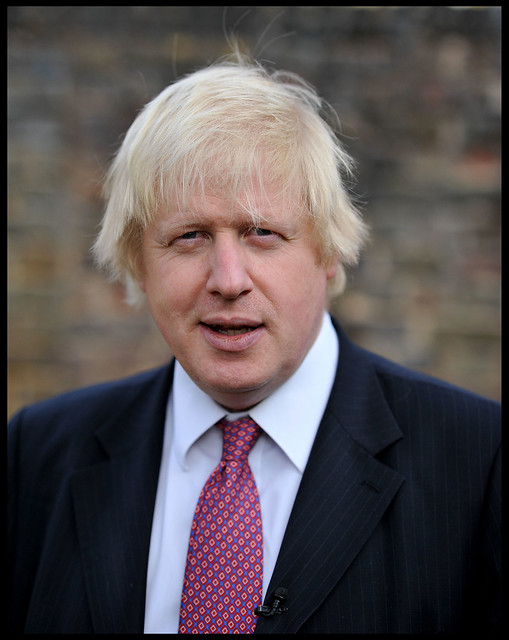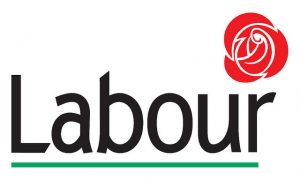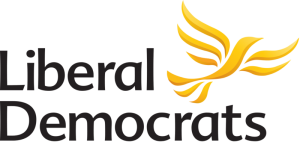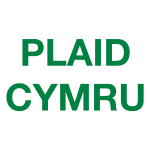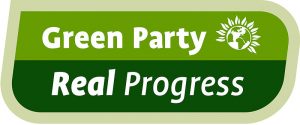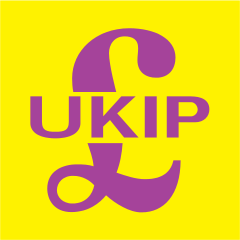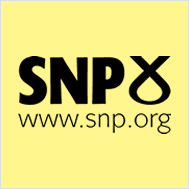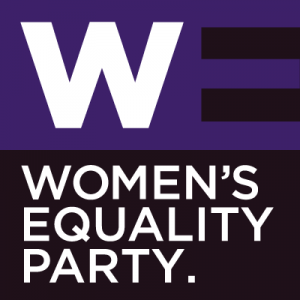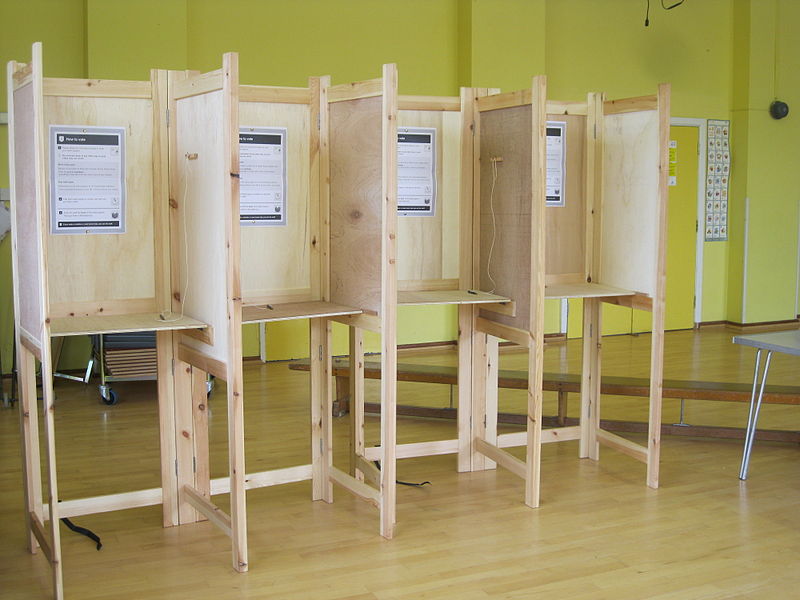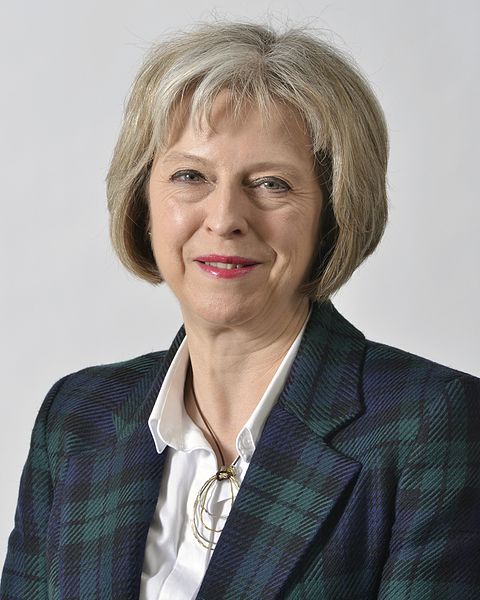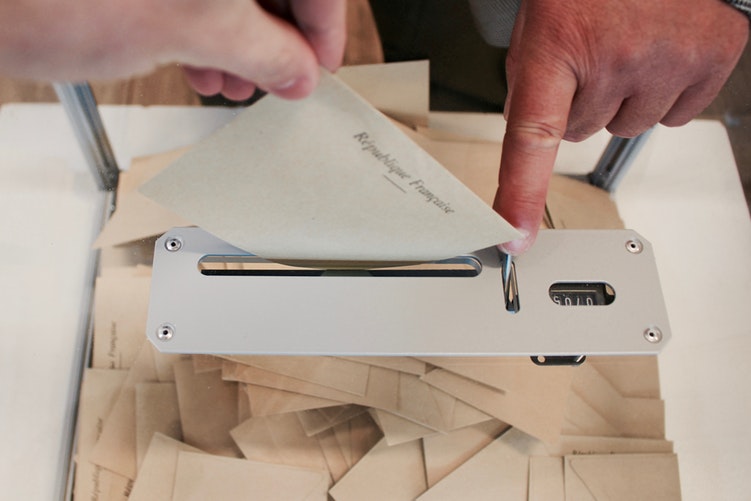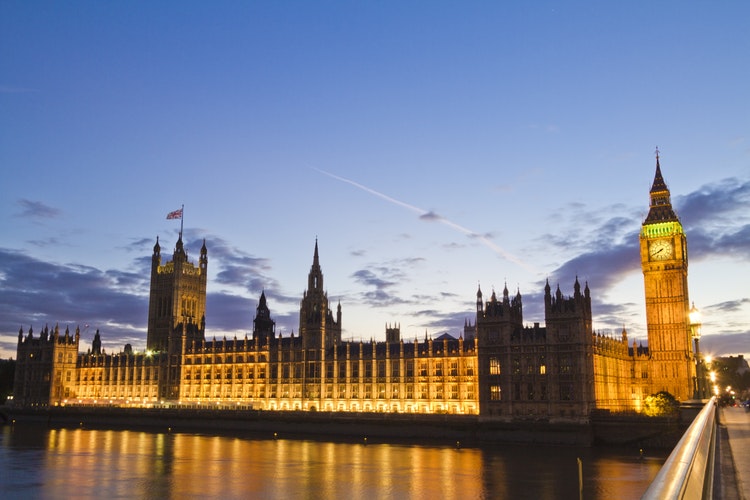 As Boris Johnson is declared the new Prime Minister of the UK, politics is a popular topic of conversation everywhere. This controversial appointment has given us all the perfect excuse to slip some political vocabulary into our EFL lessons. There is currently much discussion about political issues affecting the UK, especially with Brexit on the horizon, so read on for some vocabulary ideas to add to your next politics EFL lesson.
As Boris Johnson is declared the new Prime Minister of the UK, politics is a popular topic of conversation everywhere. This controversial appointment has given us all the perfect excuse to slip some political vocabulary into our EFL lessons. There is currently much discussion about political issues affecting the UK, especially with Brexit on the horizon, so read on for some vocabulary ideas to add to your next politics EFL lesson.
If the Conservative party’s election of Boris Johnson as the new Prime Minister has left you thirsty for political chat, read on as we explore some voting vocabulary related to UK politics.
Our article will help you get to grips with UK election and voting terms. We’re also exploring the various political parties and looking at the history of women’s suffrage. Teachers may like to use our article and following questions as the basis for a comprehension exercise or conversation class.
Politics is an interesting topic for non-native speakers. With all the new vocabulary flying around, EFL students may be interested to find out more about the political parties in the UK and the English voting system.
The first stop in our EFL politics lesson is political vocabulary, as there are many new words and phrases associated with UK elections and voting.
Guide to UK elections and voting
Local Elections
In a local election, people vote for their local councillors. This usually happens on the first Thursday in May. There are usually around 150 different councils up for vote. Local elections generally concern matters in your local area, such as roads, local parks, libraries and bin collections.
Councillors standing for election can be affiliated to established political parties, such as the Conservatives or Labour, or they can be independent candidates. The office term lasts for four years.
General Elections
In a general election, each constituency in the UK elects one Member of Parliament (MP) to a seat in the House of Commons for up to 5 years.
The election is a secret ballot where the electorate (all the people who can vote) go to their local polling station, receive their ballot paper and place a cross next to the name of the candidate they want to be their representative in the House of Commons.
Each candidate represents a political party, however, sometimes a candidate is Independent, which means they are not attached to any political party.
Each political party has its own policies regarding important areas of a nation’s government, such as healthcare, education, economy, transport, military, foreign policy, domestic policy, sport and environment.
The Prime Minister
The Prime Minister is the leader of the political party that is currently in government. The PM is elected by the members of their own party.
This means Boris Johnson was chosen to be PM by the Conservative party members, not the public. As the Conservative Party membership is 71% male, 97% white, 86% middle class and 44% aged over 65, many people in the UK do not feel Boris Johnson represents their interests. This is a particular concern considering he will be negotiating Brexit on behalf of the nation.
Political parties in the UK
In the UK, the two biggest political parties are Conservatives and Labour. There are also a number of other important parties with different focuses. The parties all have logos and colours associated with them.
The main political parties in the UK are:
Conservatives, Labour, Liberal Democrats, Green Party, Ukip, Scottish National Party and Plaid Cymru.
The Conservatives are centre-right politically, associated with tradition and economic competence, Labour is a centre-left party perceived as more caring and concerned with the issues of the working class, the Liberal Democrats are in the political centre.
UKIP (UK Independence Party) are a right wing party, whose main policy is the aim to encourage the UK to leave the EU; the Greens are a left wing party concerned with the environment and humanitarian issues; SNP is a left wing, anti-austerity party that wants independence for Scotland, while Plaid Cymru is a left wing, anti-austerity party concerning itself with issues relating to Wales.
Smaller political parties
There are various smaller political parties too, including the fast-growing Women’s Equality Party (WEP), which with 65,000 members, now has a higher membership than UKIP, Plaid Cymru and the Green Party.
The WEP supports feminist issues such as equal pay, equal parenting rights for men and women, free child care, an end to violence against women, equal representation of men and women in business and politics and equal treatment in the media.
Other parties that stood for election in 2017 include the Socialist Party, Workers Revolutionary Party and British National Party. People are also able to stand as independent candidates, which means they are not affiliated with any political party.
Due to the current hung parliament (a parliament with no majority), the Conservatives needed backing from the DUP, a right-wing party from Northern Ireland, in order to form a stable government.
Who can vote in a general election?
In the UK, to be eligible to vote you must be over 18 and a British citizen, Irish citizen or qualifying Commonwealth citizen. You must also be resident at an address in the UK or have been registered to vote in the UK within the last 15 years.
The only adults who cannot vote are those who are members of the House of Lords and convicted prisoners.
Women’s Suffrage
Women’s Suffrage refers to women’s right to vote and to the movement that fought to give women the vote. Before 1918 in the UK, women were not allowed to vote in elections.
2018 is the 100th anniversary of voting rights for women in the UK and this means Women’s Suffrage makes a great political topic for EFL lessons with lots of voting vocabulary of its own.
There is currently much discussion about women’s suffrage, the brave and inspirational Suffragettes and voting history in general.
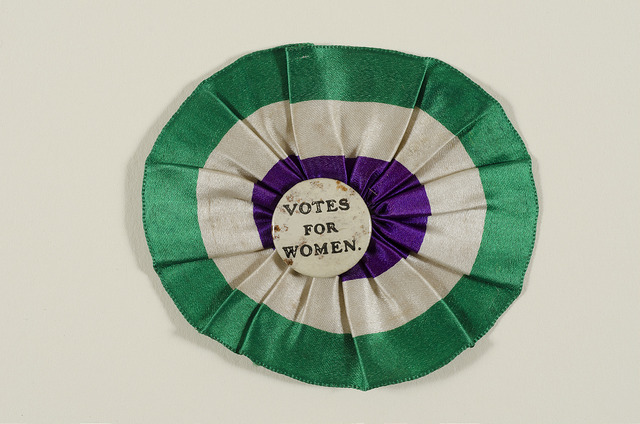
10. Votes for Women rosette, circa 1913, displaying the green, white and purple colours of the WSPU (the militant ‘Suffragettes’)
Before 1918 in the UK, women had no political voice, despite paying taxes and being required to live by the laws that were passed by parliament.
This political inequality seems impossible, shocking and absurd today, but before 1918 it was real life for a huge population of the UK.
It wasn’t only women who were denied the right to vote. Working class men were also denied this basic right. In fact, the only people allowed to vote were higher class men who owned property.
Of course, this patriarchal and elitist law was created by the aristocratic male landowners themselves, who were the only ones allowed to be elected to parliament – by each other!
The Representation of the People Act of 1918 extended the vote to all men and also to some women over 30 who also met certain property qualifications (around 8.4 million women).
The Parliament (Qualification of Women) Act 1918 was also passed in the November of the same year, allowing women to be elected into Parliament. However, it was not until 1928 that all women over 21 were allowed to vote, giving them the same voting rights as men.
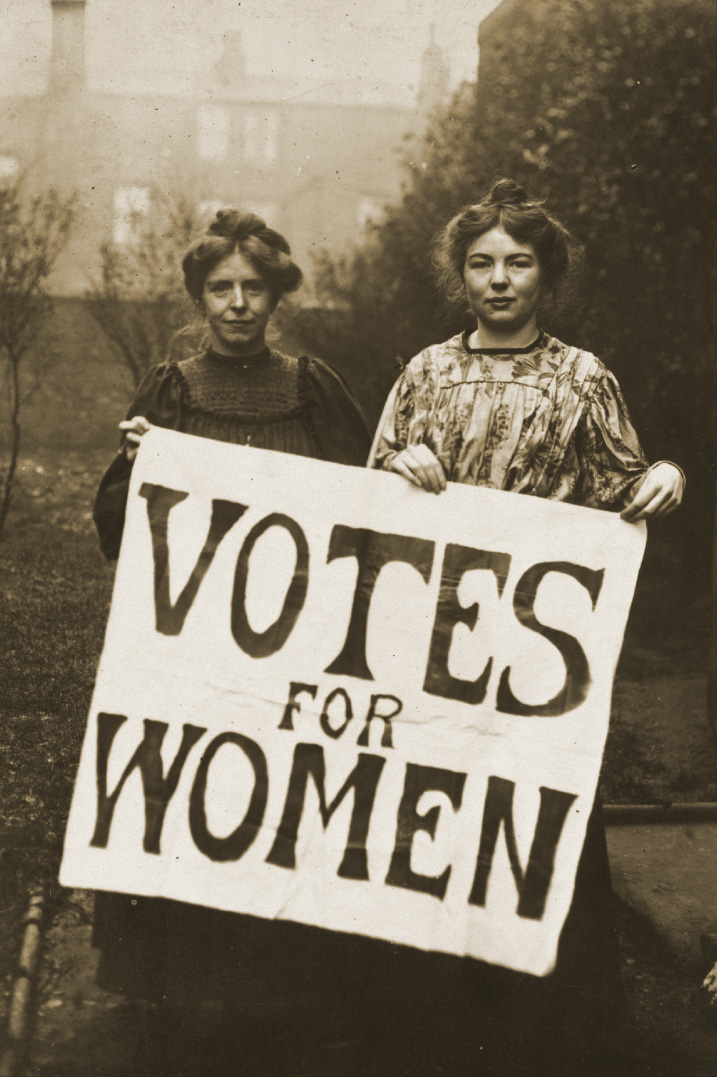
11. Annie Kenney (left) and Christabel Pankhurst – leaders of the Women’s Social and Political Union (WSPU)
Election and voting vocabulary
Election – the process of choosing a new government or representative
General election – an election to determine the leading party for the country
Local election – an election to determine the councillor for the local area
Councillor – representative for the local area (this person sits on the local council)
Council – an official body of people elected to manage the affairs of a city
Vote – the act of choosing your preferred candidate in an election
Ballot – the act of holding a secret vote
Polling station – the building where people vote
Voting booth – a small, enclosed space where people go to vote privately
Ballot paper – the piece of paper with the candidates’ names listed
Postal vote – a vote made by post
Party – organisation that aims for political power
Politician – a person who works in politics
Candidate – a person who is standing in an election
Independent – a candidate who is not attached to any party
Leader – the head person of a party
Member of Parliament (MP) – the person who represents their constituency in the House of Commons
Prime Minister (PM) – the leader of the government
The Opposition – the main party who are not in power
Party political broadcast – a television or radio broadcast advertising a certain political party
Canvassing – making direct contact with prospective voters, usually to give them details of a party’s policies and encourage them to vote for a certain candidate
Campaign – an organised effort to win an election
Leaflet – a small brochure or piece of paper with information on
Policies – acts of government (or proposals for acts of government) that alter the laws of a country
Constituency – an area of the UK that elects a member to parliament
The electorate – the people who can vote
Government – the political body that makes the laws for the country
House of Commons – the lower house in parliament. An elected body consisting of 650 members known as Members of Parliament (MPs)
House of Lords – the upper house in parliament. An appointed body consisting of members of the British peerage
Democracy – a state of government where the people choose their representatives. In the UK, the public choose their MPs to represent them in the House of Commons
Coalition – an agreement between two political parties
Manifesto – a publication of the policies, intentions, motives and views of a political party
Referendum – a direct vote by the electorate to determine a single decision
Opinion polls – an assessment of public opinion by questioning a representative sample
Hung parliament – a state of government in which no political party has an absolute majority of seats. In the UK, a party must win 326 of the 650 seats in the House of Commons in order to win an absolute majority. If this does not happen, the winning party will normally try to form a coalition with another party. The 2017 UK general election resulted in a hung parliament.
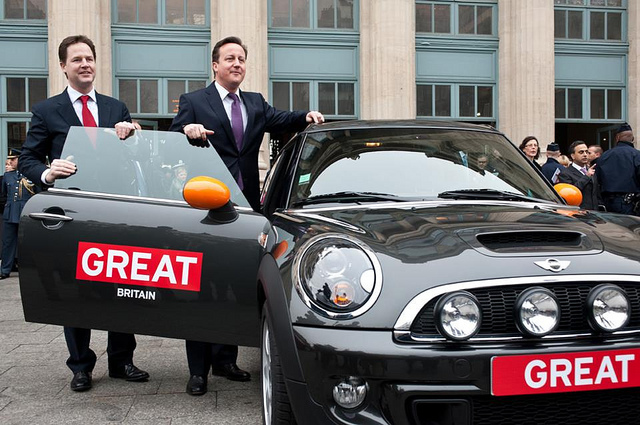
14. David Cameron and Nick Clegg formed a Conservative-Liberal Democrat coalition government in 2010
Suffrage – the right to vote in political elections
Suffragist – a person who supports the extension of suffrage, usually used in reference to women’s right to vote
Suffragette – a person who campaigned for voting rights for women in the late 19th and early 20th century. It particularly refers to members of the Women’s Social and Political Union (WSPU), founded by Emmeline Pankhurst.
Presenting election vocabulary
Teachers can present voting and election vocabulary to the class before discussing the words in more detail. It is always useful to prepare some comprehension questions to ensure students have grasped the meaning of the new vocabulary.
Here are some interesting questions to ask in class to stimulate more discussion about voting in general. These questions are ideal for students wanting to practise their speaking skills in a conversation class:

15. Secretary of State John Kerry, House of Commons Speaker John Bercow, and UK Foreign Secretary William Hague in the House of Commons chamber
Questions to ask about politics, voting and elections:
- Are you going to vote in the general election? Did you vote in the election?
- Who will/did you vote for? (This is a very personal question, so be careful!)
- What is the minimum voting age in your country? Should the voting age be reduced to 16 in the UK?
- How many votes did the top candidate get in your constituency?
- Have you ever voted in an election? How did you feel about the process?
- Should anyone not have the right to vote in an election? Why?
- Where is your closest polling station?
- Would you like to be an MP? What would you most enjoy about being an MP? What would you least enjoy?
- If you were launching a new political party, what policies would you include in your manifesto?
- Would you have been a Suffragette?
- Who would be your ideal Prime Minister? Why?
- Would you like to be Prime Minister of the UK? Why or why not?
- What new laws would you like to introduce?
Discussing election results in the EFL class
Politics is always a fascinating subject for discussion whenever learning about a new culture and every country has its own political history.
In any democratic election, the successful party is usually the party who most strongly connects with current public concerns.
If a more extreme party is elected, either very right-wing or very left-wing, it is often due to a backlash against some current issues in society. Naturally, there is then usually a backlash against that backlash – and next time a different party is elected!
Political power tends to swing from one side to the other in this way before eventually reaching a comfortable middle ground. Then another event occurs to start a new backlash – and the pendulum starts to swing again!
Always remember when discussing politics in EFL lessons that some people feel very passionately about certain issues, so the debate could become heated and tempers could flare.
Try to keep the discussion objective, general and language-focused. If the atmosphere looks to be getting too charged, redirect the discussion to a purely language issue, such as the vocabulary of voting.
One good way to incorporate politics into an advanced EFL class is to encourage students to write their own party manifesto. What new policies would they introduce?
What do you think?
Which voting vocabulary is the most difficult to understand?
Do you have any tips for a successful politics-themed EFL lessons?
Do you have any other important political words for the election vocabulary list?
How do you deal with controversial subjects in the EFL class?
What other topics do you think would make good topics for a political EFL lesson?
Attributions
- Boris Johnson in Tooting, South London, Thursday November 24, 2011. Photo by Andrew Parsons/ Parsons Media, [CC BY-ND 2.0], via Flickr
- The Conservative Party logo by flip-a-coin.net [CC BY-SA 4.0], from Wikimedia Commons
- The Labour Party logo by The Irish Labour Party via Flickr [CC BY-ND 2.0]
- The Liberal Democrats logo by Liberal Democrats (Liberal Democrats) [CC0], via Wikimedia Commons
- The Plaid Cymru Party logo by Superbenjamin [CC BY-SA 4.0], from Wikimedia Commons
- The UK Independence Party (UKIP) logo [Public domain], via Wikimedia Commons
- The “Real Progress” lozenge that was the branding of the Green Party of England and Wales for several years from 2003. Image by Matt Wootton [CC BY 2.0], via Wikimedia Commons
- The Scottish National Party logo by the SNP [CC BY-SA 3.0], from Wikimedia Commons
- Logo of the UK Women’s Equality Party by Women’s Equality Party (http://www.womensequality.org.uk/) [Public domain], via Wikimedia Commons
- A polling booth in the w:New Forest for the UK vote change referendum and local government election. Image by Microchip08 [CC0], from Wikimedia Commons
- WSPU leaders Annie Kenney (left) and Christabel Pankhurst (circa 1908) unknown author, [Public domain] via Wikimedia Commons
- Votes for Women rosette, c.1913. Silk rosette made from ribbon in white, green and purple, with button badge at centre. The badge is enamel, white with black inscription ‘Votes for Women’ produced by the Women’s Social & Political Union (WSPU). Image by LSE Library via Flickr [Public Domain]
- Theresa May MP, Secretary of State for the Home Department, 19 May 2015. Image by UK Home Office [CC BY 2.0], via Wikimedia Commons
- David Cameron and Nick Clegg in Paris – Prime Minister David Cameron and Deputy Prime Minister Nick Clegg at the GREAT Mini launch in Paris’ Gare du Nord on 17 February 2012, attending the UK-France summit. Image by UK in France via Flickr, [CC BY-ND 2.0]
- Secretary of State John Kerry, House of Commons Speaker John Bercow, and UK Foreign Secretary William Hague in the House of Commons chamber, in London, on February 25, 2013. Image by U.S. Department of State [Public domain], via Wikimedia Commons

